Noel Anderson
“I’ve always believed in the power of stories and music actually. I started writing when I was a kid, although I don’t think I was very good back then. You’ve got to have had your heart broken before you can write anything decent—pain equals creativity for me. When I’m writing an LGBTQ screenplay like Sammy and Dave, I want it to resonate with the community while also feeling universal. What keeps me motivated is an inner desire to entertain. If I manage to make one person feel something, —whether happy or sad— then I’m content.”
“My process begins with a cup of tea and some quiet contemplation of the chaos around me. With Sammy and Dave, I was inspired by a one-night stand I had in London. I started with the two characters and let them guide me. The key is to listen to your characters and not shy away from their choices. Rewrites are essential to crafting a strong final draft—refining the dialogue, beats, and story repeatedly.”
“I see my characters as real people with flaws, needs and dreams. As I write, I often act out what they might say or do, making it quiet an immersive process for me. I once adapted Henry James’ ghost story The Turn of the Screw, and I wrote it overnight for weeks, finishing each writing session at 6am. I found writing late at night suited the ghostly tones of the story and left me feeling haunted in the process.”
“Sammy and Dave, which won best LGBTQ Screenplay at your festival, explores bisexuality and intergenerational relationships within the queer community in the early 90s. It’s set in Melbourne during the infamous police raid on a queer nightclub Tasty, it tells a deeply personal story about love, connection, sex and acceptance amidst the backdrop of the AIDS crisis. I suppose I might be a romantic at heart!”
I took a playwriting course at the National Institute of Dramatic Art in Sydney, where we explored the importance of discovering your unique voice. For me, I believe my strength lies in ability to infuse humour into my stories while staying true to the characters. My voice stems from a blend of reality and a touch of magic. Even when I’m tackling uncomfortable subjects, I strive to uncover the magic within them.”
“Collaboration is at the heart of filmmaking, though it can be hard work. ‘Make the cinematographer your best friend,’ whether or not you like them, that’s the first thing I do. Feedback is a chance to strengthen the story, as different perspectives can elevate the final piece. If the feedback is constructive, I embrace it wholeheartedly. Luckily, I rarely have issues with producers.”
“Difficult actors can be extremely challenging to work with. If an actor refuses to say a line for any reason, I never force them. Instead, I rewrite the line. Often, I end up crafting a better version, and the actor’s input has helped improve the film script.”
“I believe screenwriting is shifting toward more diverse narratives, a change long overdue. I never dwell on the future as it’s impossible to see around corners. “
“Write what scares you, and if you earn a little money save it for a rainy day —you’ll need it. Keep honing your craft, and never underestimate heartbreak; it’s where all the best stories are born.”
“My ultimate goal is to craft stories that entertain, spark meaningful conversations, and help me get things off my chest. I hope both my pain and my work inspires others to embrace their authenticity unapologetically.”
